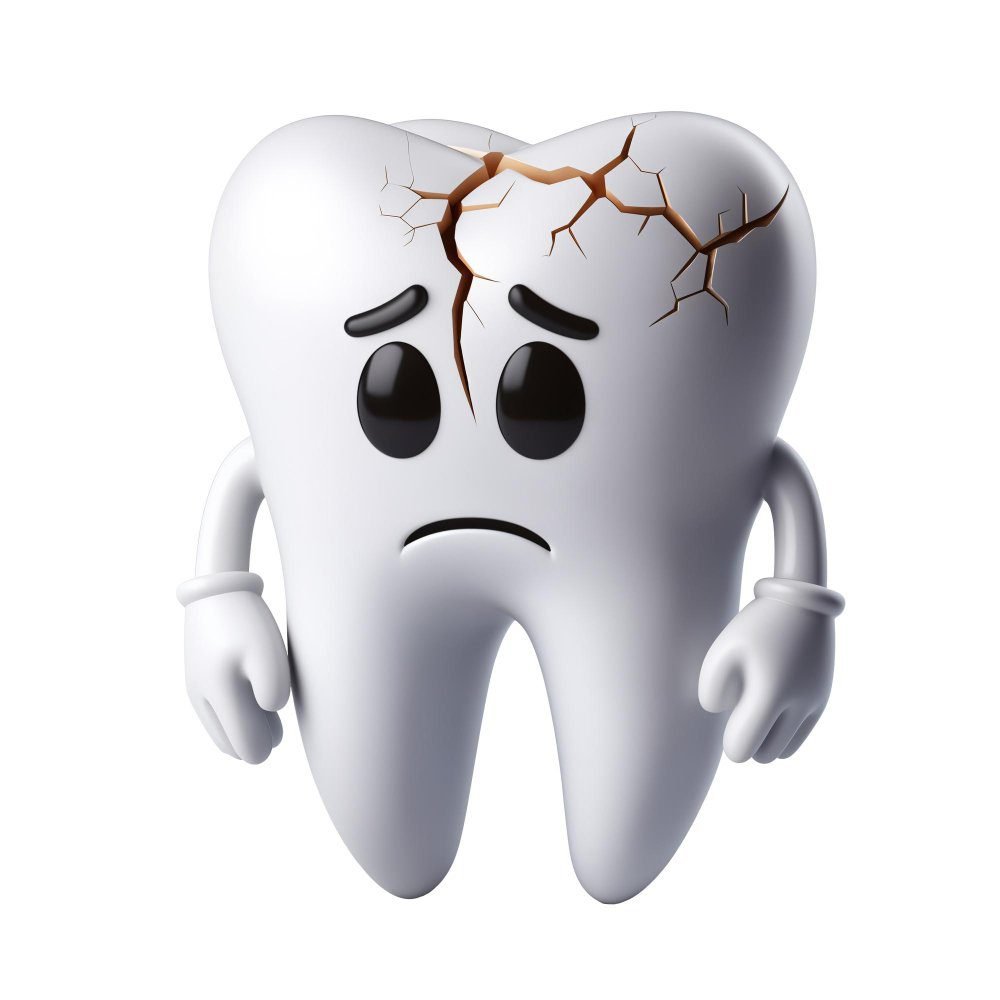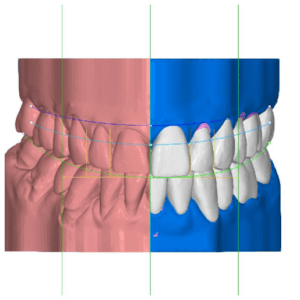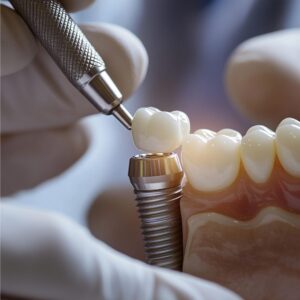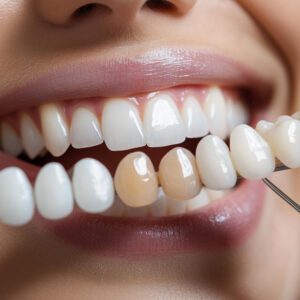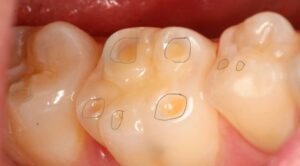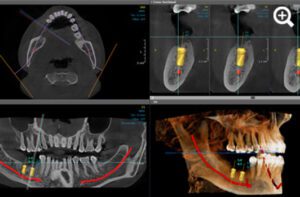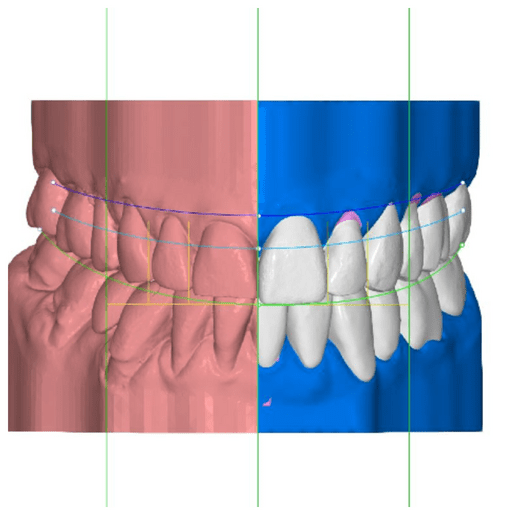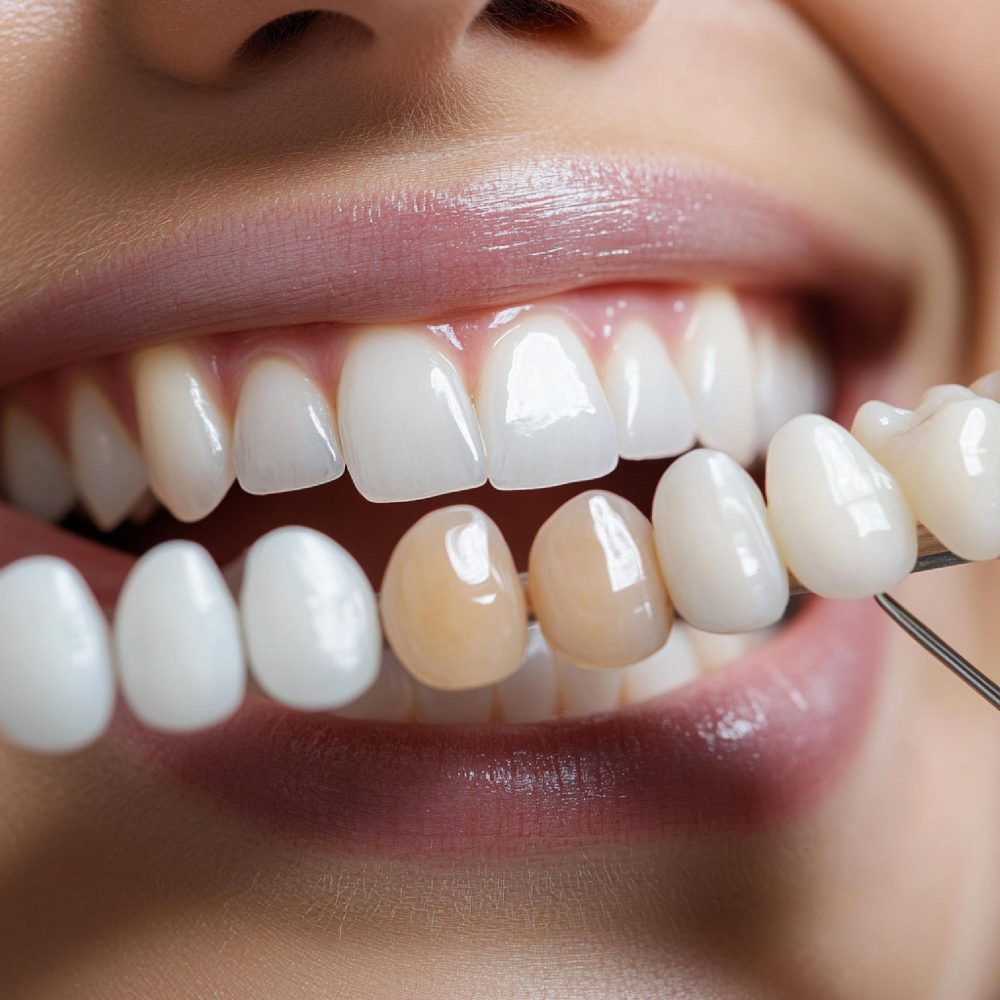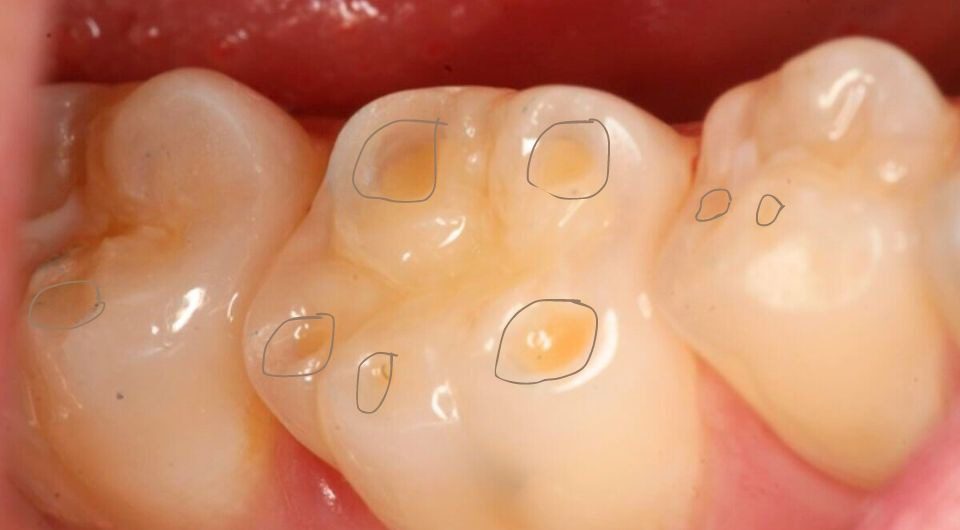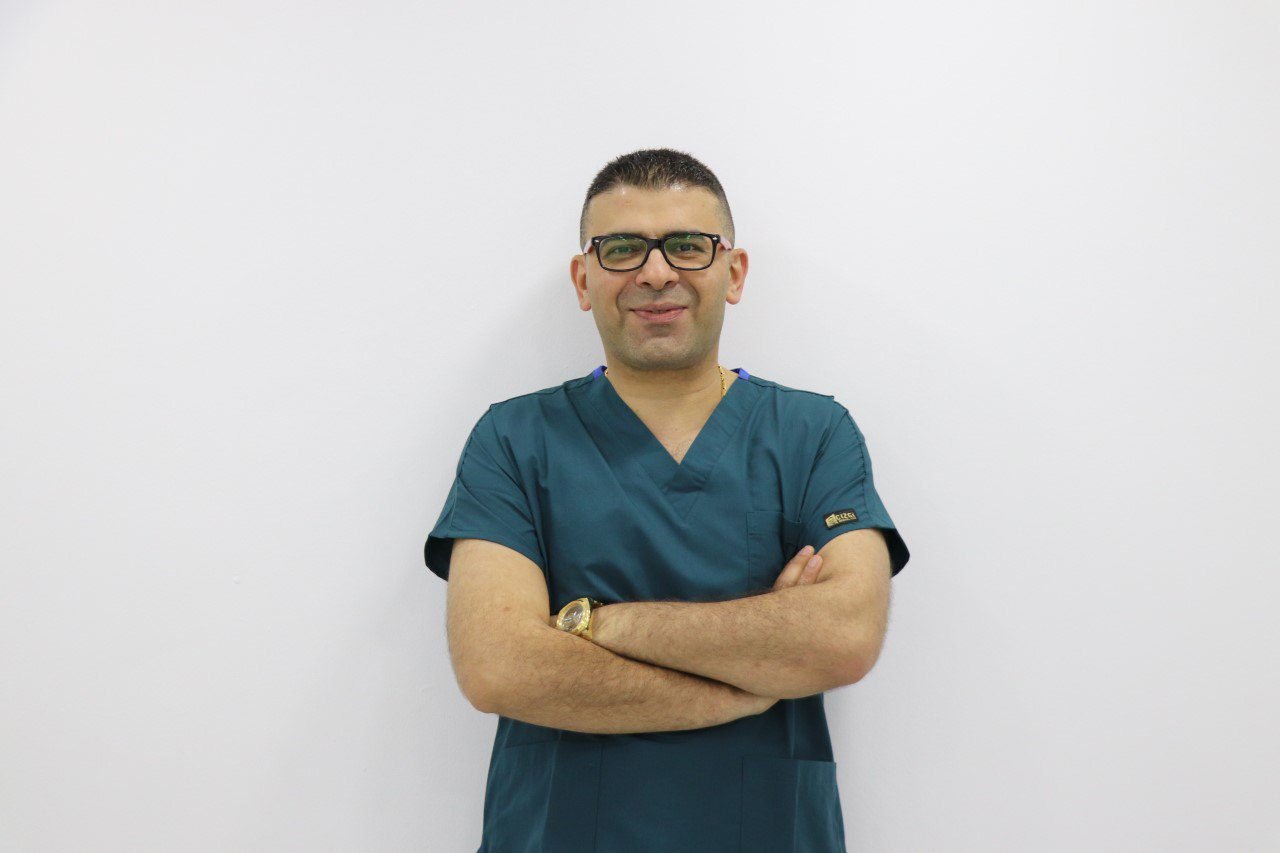Introduction to Tooth Fractures
Tooth fractures are a common dental issue that can significantly affect oral health. These fractures can occur in individuals of all ages and often result from various factors, including trauma, dietary habits, and underlying dental conditions. A study indicates that nearly one in four adults may experience some form of tooth fracture in their lifetime, underscoring the prevalence of this condition in the population.
Understanding the causes of tooth fractures is essential for effective prevention. They can develop from direct injuries, such as falls or athletic accidents, or from habits like teeth grinding or biting hard objects. Additionally, decay and weakened enamel due to poor oral hygiene can predispose teeth to fractures. As such, recognizing these risk factors is crucial for maintaining dental health and preventing tooth damage. This awareness empowers individuals to seek timely dental care and adopt healthier practices that can mitigate potential harm.
Taking proactive steps in prevention can have a positive impact on minimizing tooth fractures. This involves regular dental check-ups, where a dentist can identify early signs of decay or vulnerability in the teeth. Furthermore, educating patients on the importance of proper oral hygiene, including brushing and flossing techniques, can also significantly reduce the incidence of fractures. The use of mouthguards during high-impact sports and avoiding extremely hard foods can further protect teeth from damage.
In summary, tooth fractures represent a significant concern within dental health, influenced by multiple factors ranging from traumatic events to lifestyle choices. By understanding the causes and taking preventive measures, individuals can better safeguard their dental well-being and reduce the likelihood of encountering this common issue.
Common Causes of Tooth Fractures
Tooth fractures can occur due to a variety of reasons, each contributing to the weakening of the tooth structure. One of the primary causes is trauma, which can result from accidents or falls. When a significant force is applied to the mouth, teeth may either chip or break entirely. Sports-related injuries account for a considerable percentage of such trauma, particularly if appropriate protective gear is not utilized.
Another common factor leading to tooth fractures is bruxism, or teeth grinding, which often occurs during sleep or times of stress. The excessive pressure caused by grinding can erode the enamel, making teeth more susceptible to cracks. Those who habitually clench their jaws may not even realize the damage they are causing over time.
Tooth decay also plays a crucial role in the occurrence of fractures. As cavities develop and the integrity of the tooth diminishes, it becomes increasingly vulnerable to breakage. Poor oral hygiene and a diet high in sugary substances can exacerbate decay, making regular dental check-ups essential for prevention.
Additionally, large fillings or dental restorations can compromise tooth strength. If a tooth has been extensively treated, the remaining structure may lack the necessary support, resulting in a higher likelihood of fractures. Teeth that have undergone root canal treatment are also at increased risk since the tooth may become brittle due to the removal of pulp tissue.
Other contributing factors include dietary choices, such as chewing on hard substances like ice or hard candies, and age-related wear and tear. It’s important to recognize that a combination of these factors can also lead to fractures, emphasizing the need for consistent dental care and awareness around oral health practices.
Symptoms and Types of Tooth Fractures
Tooth fractures can manifest in various forms, each presenting distinctive symptoms that are crucial for identification. Understanding these types is essential for timely intervention and effective treatment.
The first category is incomplete fractures, which often involve minor cracks in the enamel. These fractures may not always cause immediate discomfort. Common symptoms include sensitivity to temperature changes or pressure while chewing. Patients might also notice a rough edge on the tooth, indicating a potential crack. The absence of severe pain can sometimes lead individuals to overlook these fractures, although they can progress to more serious issues if left untreated.
Another type is the complete fracture, which can extend through the enamel, dentin, and into the pulp. This type typically presents with more pronounced symptoms. Patients may experience acute pain, swelling, and the presence of exposed nerve structures leading to heightened sensitivity. Complete fractures can result in a portion of the tooth being entirely dislodged, leading to further complications, such as infections.
Crazing is yet another form, characterized by hairline cracks in the enamel that do not penetrate deeply. While these often do not produce symptoms, they can be indicative of underlying stress on the tooth and warrant monitoring.
More severe cases may involve vertical root fractures, usually arising from extensive decay or previous root canal treatments. These fractures can cause significant pain and are often challenging to diagnose, as their symptoms can resemble those of gum disease. Patients may experience localized discomfort, swelling, and tooth mobility.
Recognizing the types and symptoms of tooth fractures is pivotal for seeking appropriate care. Anyone experiencing discomfort or visible damage should consult a dental professional to determine the necessary steps for treatment.
Preventive Treatments for Tooth Fractures
Preventing tooth fractures is an essential aspect of maintaining oral health and ensuring the longevity of teeth. Proper dental hygiene is the foundation for preventing not only tooth fractures but also various other dental issues. Regularly brushing teeth with fluoride toothpaste, flossing daily, and using antibacterial mouthwash can significantly reduce the risk of decay, which is a contributing factor to tooth fractures. Establishing a consistent oral hygiene routine helps keep the enamel strong and resistant to damage.
The use of mouthguards is another crucial preventive measure, particularly for individuals engaged in contact sports or activities with a high potential for injury. Custom-fitted mouthguards can absorb impacts and protect the teeth from fractures caused by trauma. Even during recreational activities, wearing a mouthguard can prove essential, as it supports the teeth in case of accidental blows or falls.
In addition to maintaining a proper oral care routine and utilizing protective gear, regular dental check-ups are fundamental in preventing tooth fractures. Scheduling visits to the dentist every six months allows for professional examinations and cleanings, which can identify potential issues before they escalate into more serious problems. Dentists can also provide personalized advice on preventive care and treatment options tailored to individual needs.
Dietary considerations play a vital role in dental health as well. A balanced diet rich in calcium, vitamin D, and phosphorus can contribute to stronger teeth. It is advisable to limit the intake of sugary and acidic foods and beverages, as these can lead to enamel erosion, making teeth more susceptible to fractures. Drinking plenty of water and consuming crunchy fruits and vegetables can also help strengthen dental health.
The Importance of Early Detection and Treatment
Tooth fractures can arise from various factors, including trauma, excessive grinding, or underlying dental issues. Recognizing the signs of a fracture as early as possible is crucial for maintaining dental health and preventing complications. Early detection allows for timely intervention, which can mitigate pain, reduce the risk of infection, and potentially save the affected tooth.
Common indicators of a tooth fracture include sudden, sharp pain, sensitivity to temperature changes, or noticeable chips in the enamel. Patients may also experience discomfort while chewing or a feeling of looseness in the damaged tooth. Dental examinations play a vital role in identifying fractures; regular check-ups enable dentists to catch any irregularities before they escalate into significant problems. Moreover, advanced imaging techniques, such as X-rays, can help visualize fractures that are not immediately apparent to the naked eye.
Early intervention can lead to more conservative treatment options. For instance, minor fractures may simply require bonding materials to restore the tooth’s structure and function without the need for extensive procedures. Conversely, delaying treatment may mean that the fracture worsens, necessitating more invasive solutions such as root canal therapy or even tooth extraction. Prompt diagnosis and intervention can help preserve the tooth and save the patient from prolonged discomfort and higher costs associated with more complicated treatments.
Routine dental visits are essential for all patients, particularly for those engaged in activities that may increase the risk of dental injuries. Individuals who play contact sports, for example, should consider wearing protective gear to minimize the chances of fractures. Ultimately, awareness of the potential signs of tooth fractures and seeking timely treatment can make a significant difference in oral health outcomes.
Overview of Treatment Options for Tooth Fractures
Tooth fractures can necessitate a range of treatment options depending on the fracture’s severity and location. Understanding these options is crucial for informed decision-making in dental care. Commonly, the treatment options include dental bonding, crowns, root canals, and dental implants.
Dental bonding is often employed for minor fractures. This procedure involves applying a composite resin that matches the natural tooth color to repair the damage. It is a less invasive method, requiring minimal removal of tooth structure, and provides an aesthetic solution while restoring function.
In cases where the fracture is more extensive, a dental crown may be recommended. A crown encases the entire tooth to protect it, restore its shape and functionality. Crowns are typically made from a variety of materials, including porcelain, metal, or resin, and are designed to blend seamlessly with the surrounding teeth. This option is particularly beneficial when the fracture compromises the tooth’s structural integrity.
For fractures that extend into the pulp of the tooth, root canal therapy may be necessary. This procedure involves the removal of the damaged pulp, followed by sealing the empty space to protect against further infection. After a root canal, it is common to place a crown over the affected tooth to reinforce it, ensuring that it remains functional.
In more severe cases where a tooth is extensively damaged or non-restorable, the placement of a dental implant may become the best treatment option. Implants involve surgically inserting a titanium post into the jawbone, which serves as a replacement root, allowing for the attachment of custom-made crowns that mimic the appearance and function of natural teeth.
Each treatment method offers unique advantages, and the best choice often depends on individual circumstances, the extent of the fracture, and the overall dental health of the patient.
Why Choose Dr. Abdulrahman Öztürk’s Clinic in Turkey
When it comes to addressing tooth fractures, choosing the right clinic is vital for optimal dental health outcomes. Dr. Abdulrahman Öztürk’s clinic in Turkey is renowned for its exceptional services in treating oral injuries, including fractures. One of the key reasons to consider this clinic is the integration of cutting-edge technology in various treatment procedures. The clinic is equipped with state-of-the-art diagnostic and therapeutic equipment that allows for precise assessment and effective management of tooth fractures. This technology not only enhances the treatment experience but also minimizes the risks associated with dental procedures.
Moreover, the expertise and experience of the staff at Dr. Öztürk’s clinic cannot be overstated. The team comprises highly trained professionals who specialize in cosmetic and restorative dentistry. Their skillset includes advanced techniques in managing fractures, ensuring patients receive the most effective and tailored treatment. Each member of the staff is dedicated to staying updated on the latest advancements in dental practices, which further elevates the standard of care provided.
Patients who have sought treatment for tooth fractures at Dr. Öztürk’s clinic have reported numerous success stories. Testimonials highlight not just the high quality of care received but also the compassionate approach taken by the staff. Many patients express gratitude for the comfortable atmosphere and personalized support throughout their treatment journey. This focus on patient-centric care has solidified the clinic’s reputation as one of the best dental facilities in Turkey.
Lastly, affordability plays a crucial role in choosing a dental clinic, and Dr. Öztürk’s clinic is strategically positioned to offer competitive pricing without compromising on quality. Offering a variety of options, the clinic makes it accessible for patients seeking treatment for tooth fractures to receive the care they need. By considering advanced care, experienced professionals, positive patient outcomes, and financial accessibility, Dr. Abdulrahman Öztürk’s clinic stands out as a premier destination for managing tooth fractures in Turkey.
Frequently Asked Questions (FAQs)
Tooth fractures are a common dental issue that can raise several questions for patients seeking understanding and solutions. Below are some frequently asked questions regarding these fractures, their causes, and the treatment options available.
What should I do if I suspect a tooth fracture? If you suspect that you have a tooth fracture, it is imperative to contact your dentist as soon as possible. They will conduct a thorough examination to determine the extent of the damage. Symptoms such as pain, sensitivity to cold or heat, and visible cracks can indicate a fracture. In the meantime, you may manage any discomfort with over-the-counter pain relievers and avoid chewing on the affected side until you receive professional care.
What causes tooth fractures? Tooth fractures can result from various factors, including trauma, biting down on hard materials, or severe decay that weakens the tooth structure. Additionally, certain habits, like teeth grinding (bruxism), can also contribute to the risk of fractures. Understanding these causes is essential for prevention and timely intervention.
How much do treatments for tooth fractures typically cost? The cost of treating a fractured tooth can vary significantly based on the severity of the fracture and the treatment method required. Conservative treatments, such as dental bonding or fillings, usually range from $100 to $500. However, more extensive procedures, including crowns or root canals, can cost from $800 to over $2,000. It is advisable to consult with your dentist for a precise estimate tailored to your specific situation.
How can I prevent tooth fractures? Preventive measures include maintaining good oral hygiene, using a mouthguard while playing sports, and avoiding hard foods that can put undue stress on your teeth. Regular dental check-ups can also help identify and address potential issues before they lead to fractures.
Conclusion
Tooth fractures represent a significant concern in dental health, often resulting from various factors such as trauma, decay, or excessive stress on the teeth. Throughout this blog post, we have explored the underlying causes of tooth fractures and have emphasized the importance of preventive care, which includes maintaining good oral hygiene and regularly visiting dental professionals. Early detection is crucial, as it allows for timely intervention, which can mitigate further complications associated with fractured teeth.
Equipped with the knowledge of potential treatments available, individuals should be proactive in seeking assistance from qualified dental professionals. Dental clinics such as those led by Dr. Abdulrahman Öztürk in Turkey offer a range of advanced treatment options tailored to address tooth fractures effectively. Whether opting for bonding, crowns, or root canal therapy, understanding the appropriate steps to take when faced with a tooth fracture is essential for preserving one’s dental health.
In summary, being mindful of the risks and engaging in routine dental care can significantly reduce the incidence of tooth fractures. The emphasis on professional evaluation and treatment cannot be overstated in ensuring optimal dental health and preventing future issues. By taking these preventive measures and relying on reputable clinics for treatment, patients can maintain healthy teeth and gums, thus leading to a higher quality of life.

